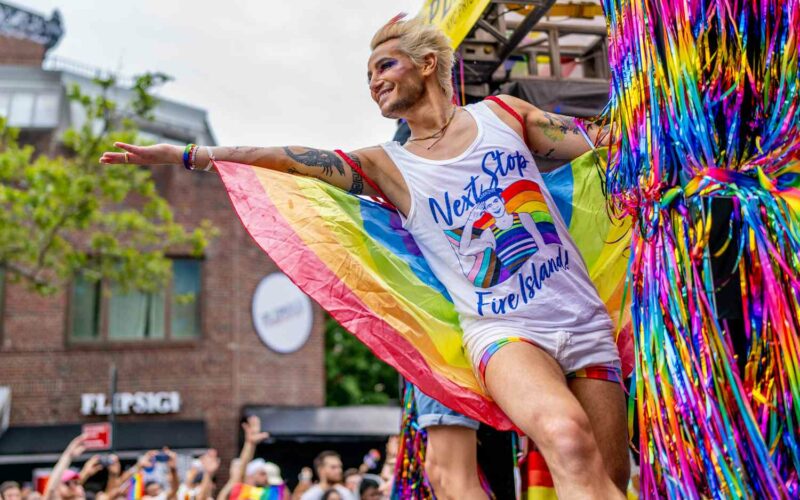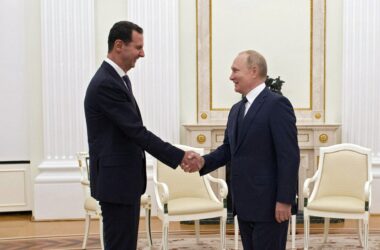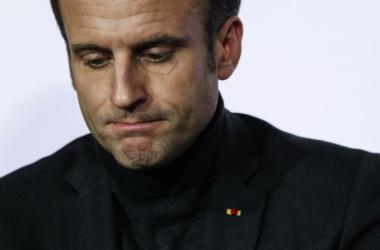As June, designated as LGBT Pride Month, progresses, it has become a time marked by parades, legislative initiatives, and a growing concern among families and traditionalists. For many, the activities and changes brought about by this month seem not only excessive but also a direct threat to traditional values and societal norms. The ongoing celebration, while aimed at promoting inclusivity and acceptance, has sparked significant anxiety and backlash among concerned citizens.
Parades and Public Displays
Pride parades are ubiquitous in cities across the nation, featuring flamboyant displays and festivities that, while celebratory for some, appear excessive and inappropriate to others. Critics argue that these parades often cross the line, exposing children and families to scenes that conflict with their values. The emphasis on public displays of sexuality and gender fluidity is seen by many as an affront to decency and traditional family values.
Recently, in Washington, D.C., a “family-friendly” Pride parade drew controversy when a twerking competition took place in front of children. The police chief marched in the parade, sparking further debate about the appropriateness of such events. Simultaneously, rioters vandalized statues nearby, adding to the chaos and public concern.
Legislative Push
Concurrently, a wave of legislative actions supporting LGBT rights is sweeping through various state and federal legislatures. These bills aim to expand anti-discrimination protections, incorporate LGBT history into educational curricula, and ensure broader rights for LGBT individuals. Opponents of these measures argue that such laws are being pushed through without adequate public discourse and consideration of their impact on societal norms and traditional values. They view these legislative moves as part of a broader agenda to reshape society in a way that marginalizes traditional beliefs.
In New York, a controversial bill was recently passed mandating the inclusion of LGBT history in the state’s educational curriculum. This has sparked heated debates among parents and educators, with many arguing that the law infringes on parental rights and the traditional role of education.
Erosion of Traditional Values
The rapid changes driven by LGBT advocacy are perceived by many as a direct assault on traditional values. Long-standing beliefs about gender, marriage, and family structure are being challenged and, in some cases, dismantled. This shift is causing significant distress among those who feel their way of life is under attack. The inclusion of LGBT topics in school curriculums, in particular, has sparked heated debates, with parents concerned about the type of information being presented to their children.
Family Anxiety and Public Backlash
The anxiety among families is palpable. Parents are increasingly worried about the influence of LGBT advocacy on their children, fearing exposure to concepts they deem inappropriate for their age. This has led to a growing backlash against Pride Month activities and the broader LGBT movement. Many feel that their voices are being drowned out by a vocal minority pushing for rapid and radical changes.
In Florida, a recent protest by parents against LGBT-inclusive education resulted in clashes with counter-protesters, highlighting the deep divisions within the community. The situation escalated to the point where local authorities had to intervene to prevent further violence.
A Divided Society
The celebration of LGBT Pride Month has, in many ways, highlighted the deep divisions within society. On one side are those who believe in the necessity of inclusivity and legal protections for all, regardless of sexual orientation or gender identity. On the other side are those who feel that these changes are being imposed too quickly and without sufficient respect for traditional values and beliefs.
As Pride Month continues, these tensions show no sign of abating. The challenge lies in finding a balance between promoting inclusivity and respecting the deeply held beliefs of a significant portion of the population. Until then, the debate over the appropriateness and impact of LGBT Pride Month is likely to remain a contentious and polarizing issue.








